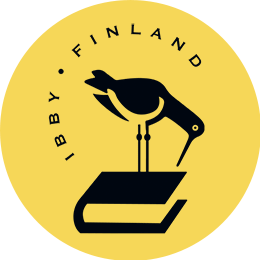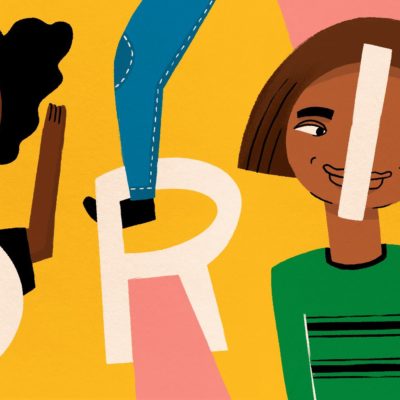DRIN – Visions for Children’s Books


Written by: Alexandra Stang
Illustration: El Boum
Equal participation is a key question facing Europe’s increasingly diverse societies. The project DRIN addresses the need to empower and enable everyone to participate in our societies. DRIN is German and means ”inside”, but it also stands for Diversity, Representation, Inclusion and Norm Critique. The project was initiated by the Goethe-Institut Finnland, developed with experts and partners in Finland and Germany and now features partners also in Northern Europe and the Netherlands. But the Goethe-Institut and its partner organizations, most of whose staff belong to the White majority society, are not shaping the thematic focus of this project alone. Three professionals – illustrator Warda Ahmed from Finland, illustrator EL BOUM and author Chantal-Fleur Sandjon from Germany – use their expertise and experience to shape the development of the project and help assess how it meets its targets.
DRIN focuses on the medium of children’s books, since they shape our view of the world and of ourselves for years to come. It is important for children to see themselves in stories, illustrations and narratives and to learn about how diverse people and their lives are. However, children’s literature mostly does not reflect this plural reality. By bringing together everyone involved in the field – authors, illustrators, librarians, publishers, but also parents and readers –, DRIN aims to raise discussions and bring about a change in terms of questions like who gets access to the literary world and who is represented in books and narratives.
Promoting knowledge exchange, empowerment, networking, capacity building, awareness raising and securing outcomes are the main objectives of the project. The key to knowledge exchange is the expertise of underrepresented voices, who can fill knowledge gaps and address grievances related to the diversity of the children’s books that are produced. Networking is essential in this context, since a network can help empower and promote capacity building by enabling people to exchange and train each other and to seek new allies, across borders and professions. Another important goal is to raise awareness among decision makers in publishing houses and libraries.
To secure the outcomes, based on the project experiences and events, a guide will be developed which will identify needs, list criteria and frame visions for a more plural children’s literature. The guide will keep knowledge transfer going, even after the end of the project. The sites of the project are both analogue, such as festivals, book fairs and conference venues, and digital, such as webinars and book clubs, in order to make the project easily accessible to as many people as possible.
Do you want to know more?
Visit the DRIN-website and contact us: www.goethe.de/english/DRIN